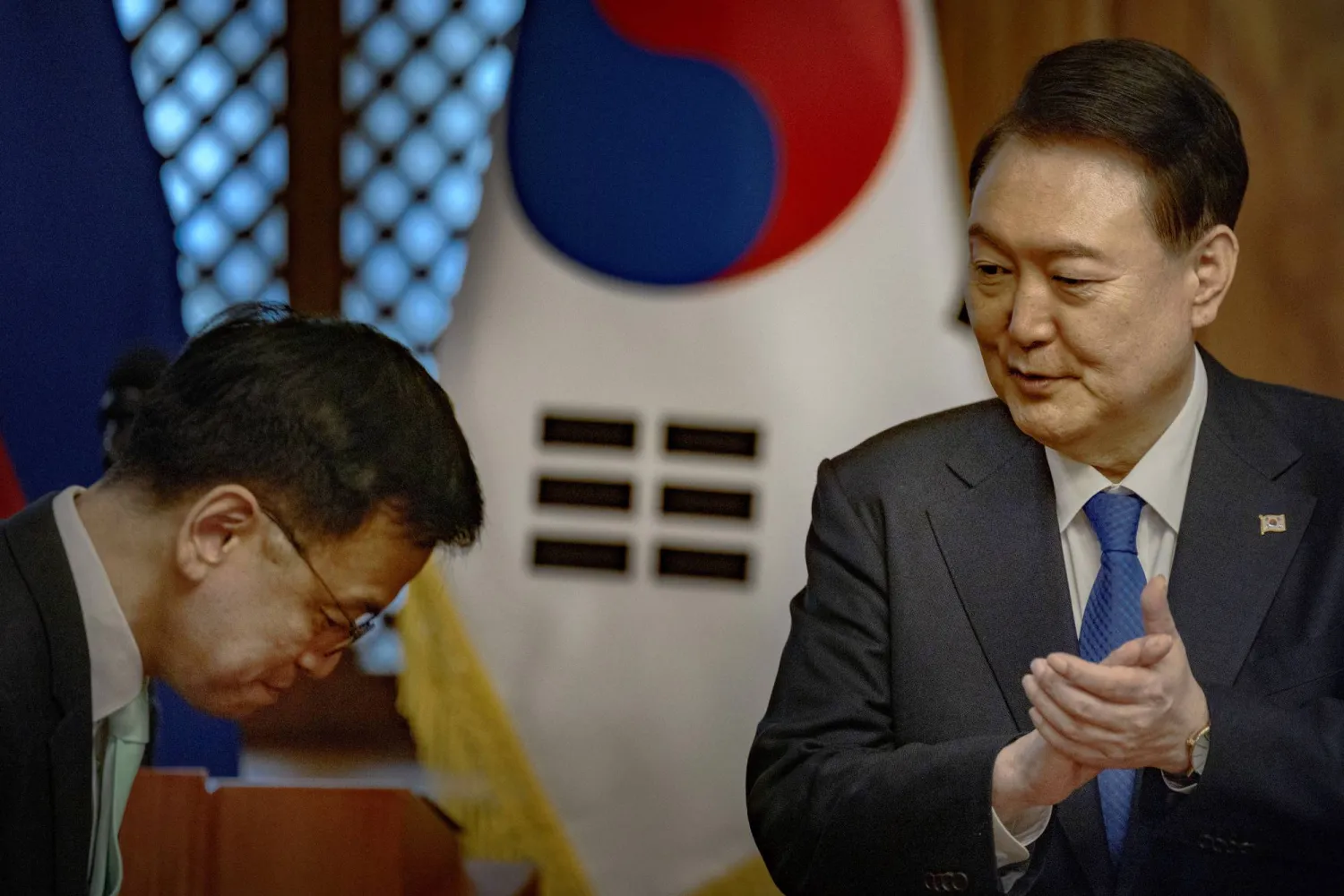South Korean President Yoon Suk Yeol and Philippine President Ferdinand Marcos Jr agreed on Monday to boost defense cooperation as their countries elevated ties to a strategic partnership amid growing security challenges in the region.
The two leaders discussed a range of issues including tensions in the South China Sea and on the Korean peninsula during talks at the Philippine presidential palace where they also signed agreements on coastguard cooperation and nuclear energy, Reuters said.
"President Marcos and I opened a new chapter of our partnership by elevating our relationship to a strategic partnership," said Yoon, who is on a state visit to Manila, the first by a South Korean leader in more than a decade.
In a joint press conference with Marcos, Yoon said his country would actively take part in the latest phase of the Philippines multi-billion-dollar effort to modernize its military security at a time of rising tensions with China in the South China Sea.
South Korea has been trying to ramp up global defense exports, as Russia's invasion of Ukraine opened the door to sign large-scale contracts from Europe, the Middle East and Asia.
The country, which has sold FA-50 fighter jets, corvettes, and frigates to the Philippines, aims to become the world's fourth-largest arms exporter by 2027.
In the third phase of its modernisation plan, the Philippine military is looking to buy advanced assets such as fighter jets, submarines and missile systems, to beef up territorial defense and maritime security.
The two leaders agreed to uphold an international rules-based order, including on safety of navigation in the South China Sea, Yoon said, adding they agreed the international community would never condone North Korea's nuclear programme or what he called "reckless provocations".
Yoon, who was elected in 2022 on a pledge to boost South Korea's nuclear power industry by targeting the export of 10 more nuclear power plants by 2030, announced the signing of a memorandum of agreement (MOU) for a feasibility study on the long-dormant Philippine Bataan Nuclear Power Plant (BNPP).
The BNPP, approved by the late strongman and namesake father of Marcos, has not produced any electricity since it was finished in 1984, despite its $2.3 billion price tag and its promise of energy security during the 1970s oil crisis.
The Philippines wants to tap nuclear power as a viable alternative baseload power source as it seeks to retire coal plants to help meet climate goals and boost energy security.
After Manila, Yoon will visit Singapore on Tuesday and Wednesday before heading to Laos the following day, where he will attend the regional summit of leaders of the Association of Southeast Asian Nations and several other Asian countries.
Philippines, South Korea Boost Defense Cooperation, Upgrades Ties to Strategic Partnership

South Korean President Yoon Suk Yeol (R) applauds during a meeting with the Philippine president at the Malacanang Palace in Manila, Philippines, 07 October 2024. EPA/EZRA ACAYAN / POOL

Philippines, South Korea Boost Defense Cooperation, Upgrades Ties to Strategic Partnership

South Korean President Yoon Suk Yeol (R) applauds during a meeting with the Philippine president at the Malacanang Palace in Manila, Philippines, 07 October 2024. EPA/EZRA ACAYAN / POOL
لم تشترك بعد
انشئ حساباً خاصاً بك لتحصل على أخبار مخصصة لك ولتتمتع بخاصية حفظ المقالات وتتلقى نشراتنا البريدية المتنوعة







